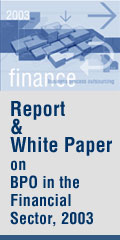|


|
IMF implements major lending policy improvements & & create new flexible credit line (FCL)
March 25, 2009:
The Executive Board of the International Monetary Fund (IMF) today approved a major overhaul of the IMF’s lending framework, including the creation of a new Flexible Credit Line (FCL).
In response to the deepening global economic difficulties, the IMF is implementing a series of reforms that will strengthen its lending framework. These measures reflect consultations with Fund members and stakeholders, and will enable the Fund to respond more effectively to the evolving challenges of crisis-affected countries.
Emerging market and developing countries are facing increasing strains from the global economic downturn. As the crisis is becoming more prolonged, many of these countries are finding that their room for policy maneuver is becoming more constrained. In these circumstances, timely IMF financing—if provided in an appropriate amount and form—can cushion the economic and social costs of external shocks. In some cases Fund assistance could help prevent crises altogether.
Against this background, the IMF Board has approved a major overhaul to the Fund’s lending framework by:
• modernizing IMF conditionality,
• introducing a new flexible credit line,
• enhancing the flexibility of the Fund’s regular stand-by lending arrangement,
• doubling access limits,
• adapting and simplifying cost and maturity structures for its lending, and
• eliminating facilities that were seldom used.
In addition, the IMF is seeking to sharply increase both its nonconcessional and concessional lending resources, which would enable it to meet expanded financing requirements in the crisis. Reforms of concessional lending instruments for low-income members are also in train.
Modernizing conditionality: The IMF aims to ensure that conditions linked to IMF loan disbursements are focused and adequately tailored to the varying strengths of countries’ policies and fundamentals. In the past, IMF loans often had too many conditions that were insufficiently focused on core objectives.
This modernization is to be achieved in two key ways. First the IMF will rely more on pre-set qualification criteria (ex-ante conditionality) where appropriate rather than on traditional (ex post) conditionality as the basis for providing countries access to Fund resources. This principle is embodied in a new Flexible Credit Line. Second, implementation of structural policies in IMF-supported programs will from now on be monitored in the context of program reviews, rather than through the use of structural performance criteria, which will be discontinued in all Fund arrangements, including those with low-income countries. While structural reforms will continue to be integral to Fund-supported programs where needed, their monitoring will be done in a way that reduces stigma, as countries will no longer need formal waivers if they fail to meet a structural reform by a particular date.
Flexible Credit Line (FCL): The IMF is introducing a new credit line for countries with very strong fundamentals, policies, and track records of policy implementation. Access to the FCL credit line will be particularly useful for crisis prevention purposes. FCL arrangements would be approved for countries meeting pre-set qualification criteria. Access under the FCL would be determined on a case-by-case basis. Disbursements under the FCL would not be phased or conditioned to policy understandings as is the case under a traditional Fund-supported program
... Read more about FCL
>>GO TO NEXT PAGE
Medium-term fiscal consolidation a priority for India, says IMF
IMF Welcomes Comprehensive European Response to Financial Crisis
IMF sees heightened risks to global financial stability
CLICK FOR SPECIAL SECTION ON GLOBAL FINANCIAL CRISIS
Subprime Crisis: A Special
CLICK FOR MORE FEATURES & STORIES
|
|
|